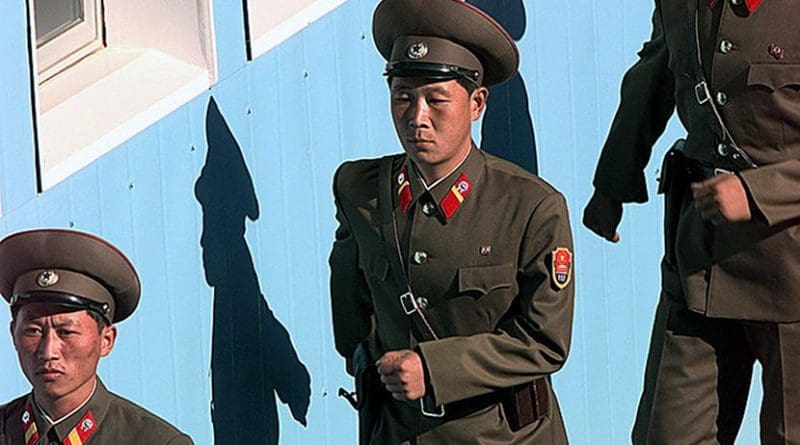US’ Wrong Recipe On North Korea – OpEd
As the UN Security Council debates fresh US-proposed sanctions on North Korea over its relentless ‘rogue’ nuclear behavior, and Washington’s pressure on Beijing to adopt a more robust position against Pyongyang, the rules of ‘smart diplomacy’ dictate an urgent visit to alternative, non-coercive, counter-measures that may have more desired influence with the unruly Kim Jong-un, such as giving South Korea a great leeway in seeking a meaningful de-escalation of tensions.
Indeed, the South Korean President, Moon Je-in, is repeatedly on record favoring constructive engagement with the North, yet is so far sidelined by the White House unwilling or uninterested in letting its regional ally intrude in shaping its North Korea policy. But, this makes no sense at all, for the sake of all parties involved, above all the Koreans on both side, whose fates are nowadays imperiled by an escalating crisis edging toward a military solution.
Lest we forget, unlike his predecessors, President Moon since his May 2017 victory has made several rather significant overtures toward the North by, for example, offering to meet Kim “any time, anywhere” and to let North Korea join in the 2018 Winter Olympics.
Moon’s engagement approach is based on a fundamental recognition of the limits of coercive pressure on Pyongyang, and the distinct possibility that more such pressures will yield an unwanted war with calamitous results rather than a North capitulation to Washington’s demands.
In this, Moon is backed by a whole array of US politicians and (former) diplomats, some of whom recently penned a letter to President Trump counseling US’ diplomatic engagement of North Korea. Even the US Defense Secretary James Mattis has admitted on record that should it come to war with North Korea, the result “is going to be tragic on an unbelievable scale.”
Millions of civilians in Seoul and elsewhere in South Korea, easily within reach of North’s conventional weapons, will be instantly jeopardized in a war scenario — that will likely trigger the use of nuclear weapons as well. Avoiding this nightmare scenario, that might engulf Japan as well since North Korea’s missiles are easily capable of hitting targets in Japan, at all costs is therefore a top South Korean priority, requiring direct North-South engagement, as a viable alternative to the present recourse to coercive and punitive measures against the North.
Certainly, depriving the North of oil and fuel through a UN-led sanctions is destined to fuel the fire of North’s aggression beyond its borders and is a recipe for disaster. Before the US succeeds in bringing the North Korean economy down through a comprehensive oil sanctions, Pyongyang will likely strike to, at a minimum, play brinksmanship, thus closing off the option for Moon’s plans for engagement.
Crafting a new, and increasingly harmonious relationship, between Seoul and Pyongyang, is an inescapable necessity, presently overshadowed by the US’ coercive approach that will directly impact the lives of millions of Koreans on both side without much of a meaningful input by the South. There is an urgent need, logically speaking, to reconsider this unwise approach in Washington that has been the standard approach save minor exceptions. For the US itself, overstretched and far from ready to be “locked and loaded” vis-a-vis the North at Trump recently stated, avoiding the monumental financial burden of yet another external crisis forms a top priority that, inevitably, raises the role of diplomacy.
Yet, as stated above, the major lacunae of US’ North Korean policy is the absence of adequate attention to the solutions sui generis in the Korean Peninsula, involving greater bilateral interactions and relations, between the North and the South, which is hitherto frustrated in part by US’ unwillingness to let Seoul become a principal architect of its North Korean policy, a policy that is now drifting toward the dangerous and unpredictable directions of conflict with North Korea and, connectedly, greater tensions with North’s regional patron state, China.

